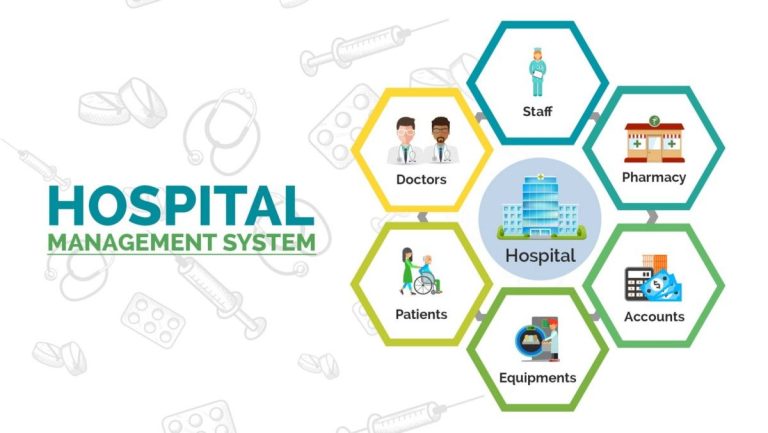A Hospital Management System (HMS), also known as Hospital Information System (HIS) or Hospital Information Management System (HIMS), is a comprehensive software solution designed to manage various aspects of a hospital or healthcare facility’s operations. It streamlines and automates a wide range of administrative, clinical, financial, and operational processes, aiming to improve the overall efficiency, accuracy, and quality of patient care while also facilitating the management and decision-making within the healthcare organization.
Here are some of the key features and functionalities of a Hospital Management System:
- Patient Registration: Capturing and storing patient demographic information, contact details, and medical history.
- Appointment Scheduling: Managing appointments for patients to see doctors or specialists, including online appointment booking.
- Admission and Discharge: Tracking patient admissions, discharges, and transfers within the hospital.
- Electronic Health Records (EHR): Maintaining digital patient records, including medical history, diagnoses, treatment plans, and test results.
- Billing and Invoicing: Generating and managing bills, invoices, and claims for patients and insurance companies.
- Pharmacy and Inventory Management: Managing the hospital’s pharmacy stock and inventory of medical supplies and equipment.
- Laboratory and Radiology Information: Integrating test orders and results, including imaging and lab reports.
- Patient Management: Tracking patient progress throughout their stay, including medication administration and nursing notes.
- Staff and Payroll Management: Managing employee records, attendance, and payroll.
- Financial Management: Monitoring the hospital’s financial transactions, expenses, and revenue.
- Security and Access Control: Implementing role-based access control to protect patient data and sensitive information.
- Reporting and Analytics: Generating various reports for decision-making, compliance, and performance analysis.
- Mobile Accessibility: Offering mobile apps for healthcare professionals to access patient data and update records on the go.
- Interoperability: Integrating with other healthcare systems and standards to facilitate the exchange of patient information with external entities.
- Compliance and Regulations: Ensuring that the system complies with healthcare regulations and standards, such as HIPAA (in the United States) or GDPR (in the European Union).
Hospitals and healthcare facilities use these systems to streamline operations, reduce paperwork, enhance patient care, improve decision-making, and maintain accurate medical records. Hospital Management Systems come in various configurations, from basic systems to more advanced, integrated solutions, depending on the specific needs of the healthcare organization. The implementation of such a system can significantly enhance the efficiency and quality of healthcare services.
Benefits of Hospital Management Systems
Reduced Costs and Workload
The effective distribution of resources is vital to good care and the organization’s overall well-being. A well-managed workload and efficient budgeting, in particular, allow for optimal planning of hospital performance.
Improved Patient Experience
Increasing hospital administration software’s consistency, scalability, and dependability enhances patient care and experience, making a healthcare practice’s operations significantly more efficient.
Proper data management can prevent such healthcare issues as delayed care for patients who require immediate medical attention. Thus, hospital management software would improve the effectiveness and appeal of healthcare services to their key audience: doctors and patients.
Tushawebsites has expertise in a variety of areas including consultancy, Point Of Sale Systems, Website design, support, analysis, e-commerce websites, digital marketing, SEO, and content development.


